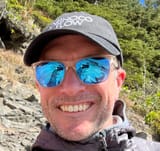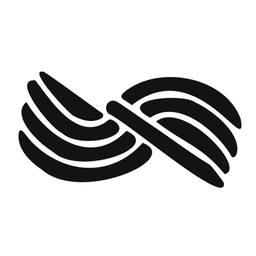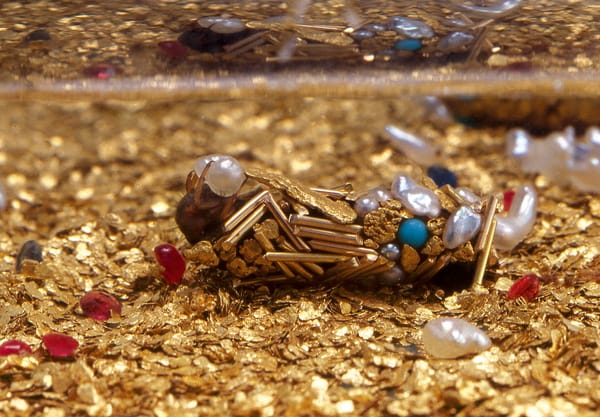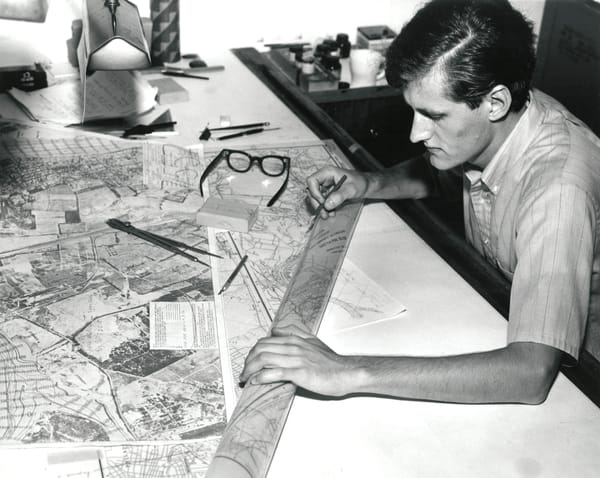Back to school: Six Tips to Start fly fishing from George Daniel
One of the greatest educators in the angling world offers a roadmap to building your skills in the sport.
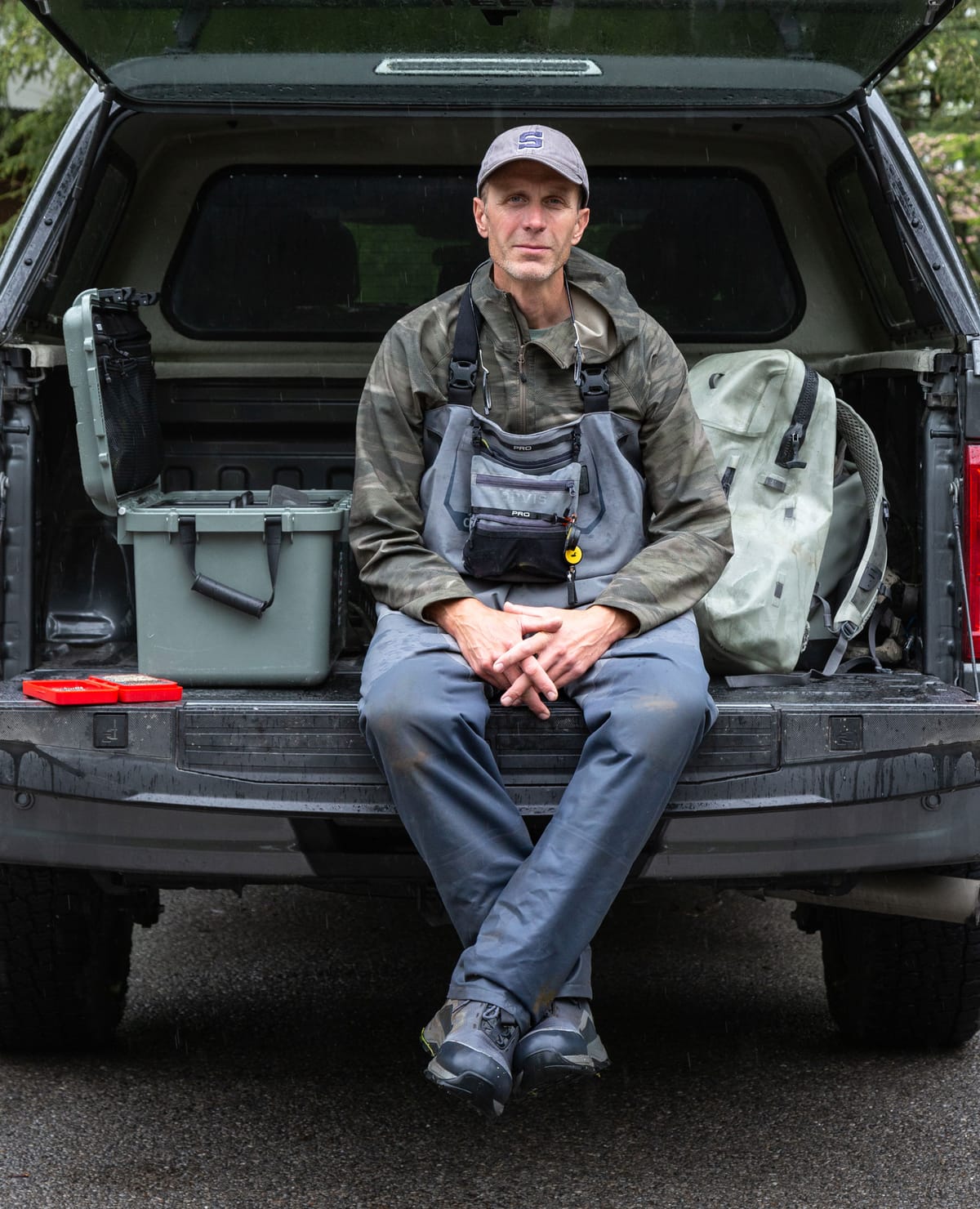
Current Flow Staters: I'm back from my sojourn in the Northern Rockies with stories galore. Before that, though, here's a little back-to-school refresher from George Daniel.
Gems from the cutting room floor
Coming up with the PennStater profile package of angling program leader George Daniel, we wanted a more service-y "Get started fly fishing" sidebar. But, the editors cut it to give the main profile more room.
So, I present it to you, here. The approach George outlines here is rock solid. Whether you're just getting going, or you've got a few seasons under your belt, take a look and assess your own approach. Let's get into it:
Tip 1: Keep your gear simple
A lot of people think fly fishing is an expensive hobby. George offers perspective: For one-third of the cost of your mobile phone, you can cover 90% of your fishing needs. Namely, a good starter fly rod outfit, some tippet, and a few flies. "Fly-fishing is going to be expensive, and it's going to be complicated," George says. "But only if you make it that way."
Tip 2: Get to know your knots
Learn to tie the two or three fundamental fishing knots. Practice them around the house, in a low-stakes environment. "One of the biggest frustrations that students have is learning how to tie a knot, especially when they're on the water. Develop that muscle memory to where you can do it pretty much blindfolded," George says.
Tip 3: Pick an area to focus on
Trying to do everything at once will prevent concrete skill-building. Focus on one specific area at a time. "In fly-fishing, it takes time to build up the skills necessary to become 80% efficient, George says. "Some people want to cast long, they want to cast short, they want to nymph fish, they want to dry fly fish, they want to streamer fish. And they want to be able to learn all this within a month. You just can't do that."
Tip 4: Aim for consistent, short casting practice sessions
Don't rely on your fishing sessions to figure out how to cast your new rod. Eliminate some variables and develop a casting practice habit closer to home. "Spend time on the grass, five, 10, 15 minutes a day,” George says. “Work on your short cast, work on your longer cast, and really develop those skill sets."
Tip 5: On the water, stick with your plan
Once you get to the water, stay with the area you decided to concentrate on. Don't try to do everything. Jumping around prevents you from getting the reps that build your skills in any one area. "If you want to learn nymphing, just bring a nymphing rod, nymphing system, and nymphing flies," George says.
Tip 6: Don't overlook fish close to home
George's time as a "trout snob" had him skipping over fishing in his own backyard. Where he fishes in Pennsylvania that means canals full of pickerel and ponds full of panfish. For a beginning angler, those are confidence-builders. "No matter where you live on the planet, there's something in the water that swims and will eat a fly," George says.
Don't overlook bluegill at the local pond. "Panfish are one of the greatest training tools out there." All the same elements of hooking and playing a fish are there. And that, George says, offers a big emotional win.
Learn more from George
If, like many of us, you're not able to attend Penn State and enroll in its storied fly fishing program, you can find much more wisdom from George on his YouTube channel or Instagram account.
And make no mistake, George walks his talk: If you want to see a minimal, focused professional fly-tying setup, look no further.
Book club's next week: Come say hi!
I pushed the summer book club date back—to Thursday, September 11, 3:30-4:30 Pacific—so more folks could join. (And, uh, so I could finish read the book.) So, there's still time to RSVP to join the summer book club!
Join us to discuss Douglas Tallamy's Nature's Best Hope and learn more about a habitat restoration movement we can all take part in, without any permitting or permission.
All are welcome. And, as with most book clubs, it's totally OK if you haven't finished the book. RSVP here and you'll get a calendar event, automatic reminders, and a link to the Zoom room where we'll be meeting. (Seriously, if you're coming, register, otherwise you won't be able to join.)
Look, here's a button, so you know I'm serious:
Learn more about our book choice, and what's in store here:
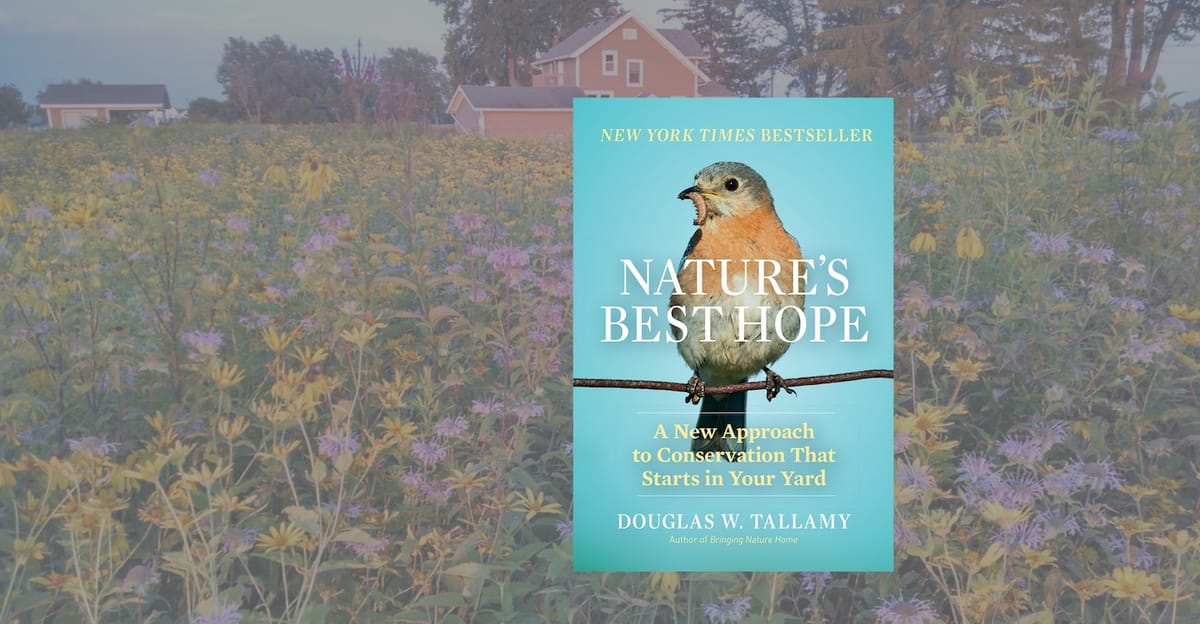
That's it for this week! Current Flow State is a weekly newsletter from me, Nick Parish.
We can also connect and discuss native plants or nymphing setups on Bluesky 🦋, Instagram 📸, YouTube 🎥, and in the Fishcord 💬.
If you enjoyed this, please share it with a friend. We all need more fishing buddies. 💌
Read our editorial policy or browse the newsletter archives.
CFS Explorer members support and sustain the site, and our community. Learn more about membership benefits. If you're getting value from this work, consider becoming an Explorer member and giving back.
𓆟 𓆝 𓆟
